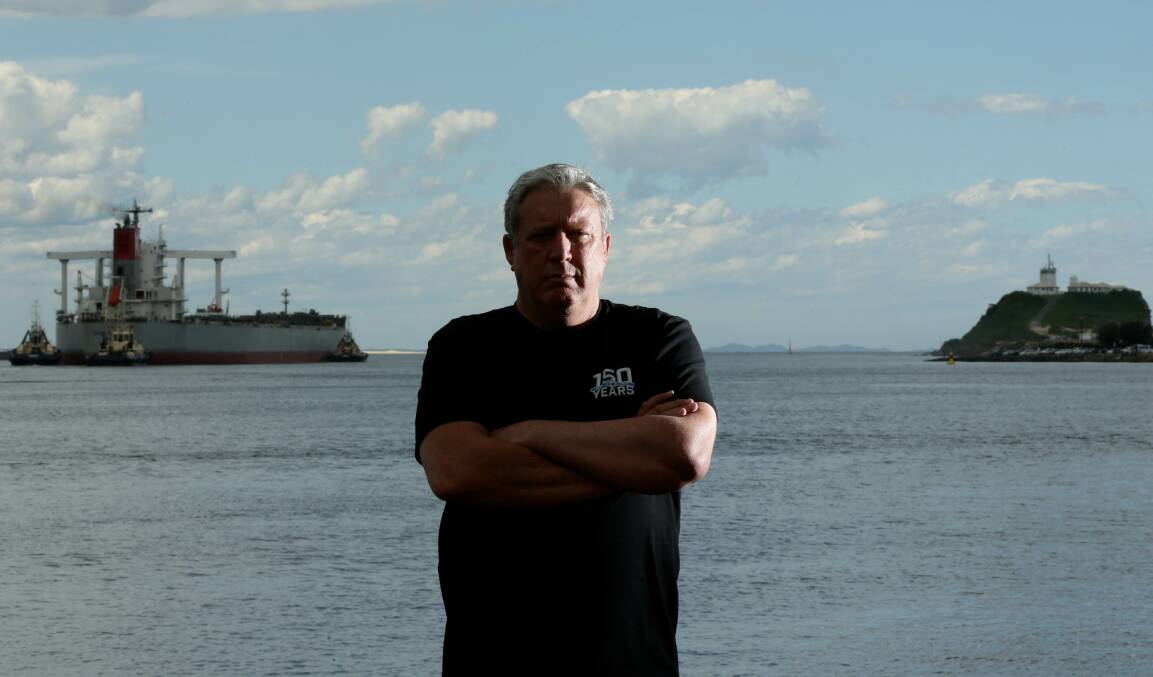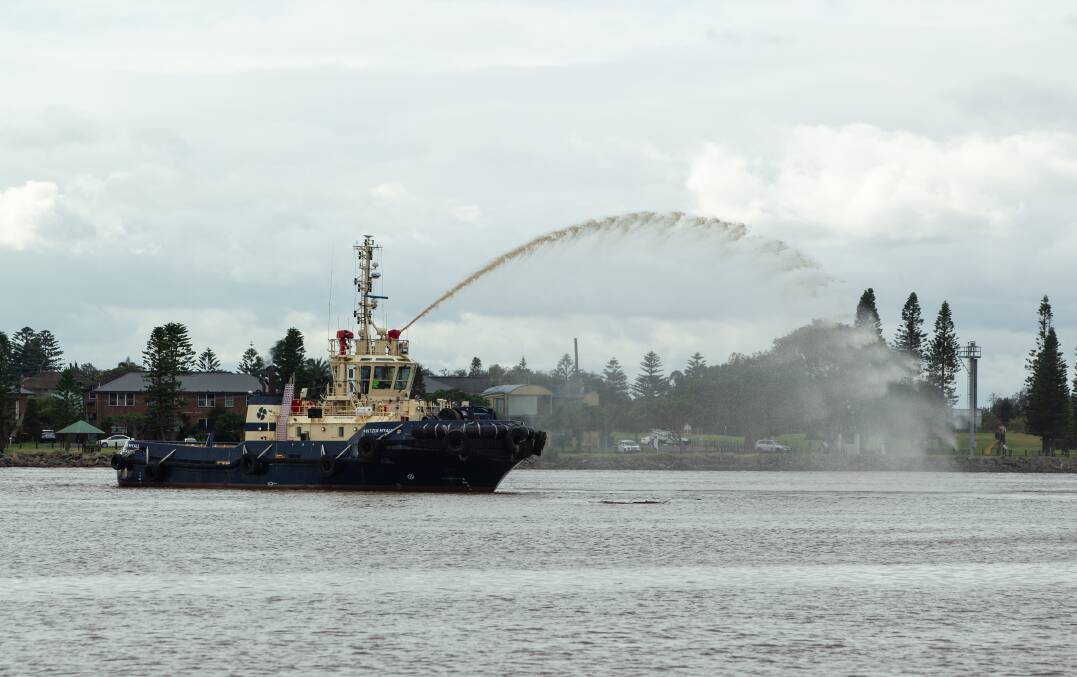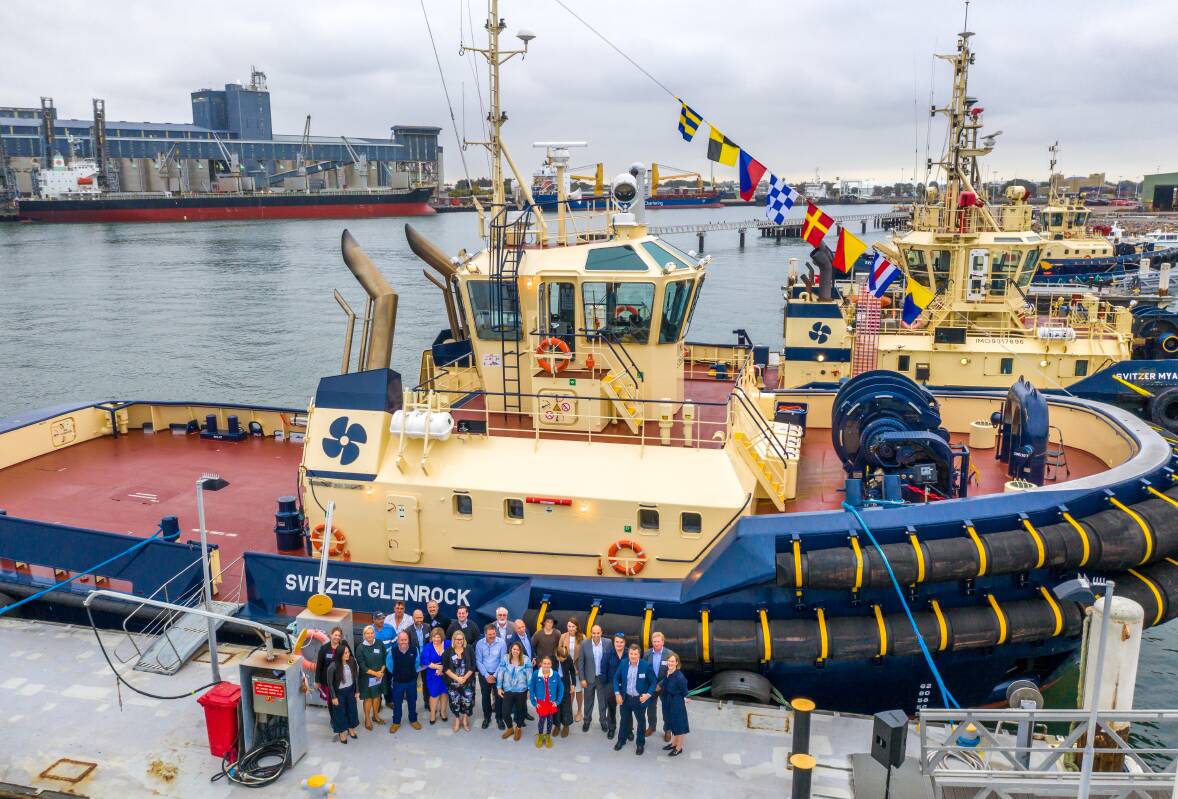
AUSTRALIA'S biggest tug operator Svitzer and three waterfront unions were called into the Fair Work Commission yesterday in an effort to avoid the company's planned indefinite shutdown of its 17 Australian ports from Friday.
A simmering dispute flared into action on Monday when the Danish-owned company said it would lock out its entire 580-strong workforce from Friday in response to union action.
That industrial action included a tug strike in Newcastle from midnight tonight that could cost $200 million in lost coal exports in the 24 hours the port would be shut.
In the Fair Work Commission late yesterday, Vice President Adam Hatcher issued a statement saying that Svitzer's lockout "announcement has caused the commission to consider making an order ... to suspend or terminate" the action under Section 424 of the Fair Work Act.
This section says the commission must act if it is satisfied "the protected industrial action" could "cause significant damage to the Australian economy or an important part of it".
The dispute returns to the commission at noon today.
Maritime Union of Australia Newcastle secretary Glen Williams said the orders did not apply to tonight's planned Newcastle stoppage.
Announcing the lockout on Monday, Svitzer said it needed to rid itself of inefficient restrictive practices while the unions said the lockout was "supply chain sabotage".
The three unions involved in the dispute are the Australian Maritime Officers Union (AMOU), representing tug captains, the Australian Institute of Marine and Power Engineers (AIMPE), representing the engineers, and the MUA covering the tug crews, or "ratings".
Stevedoring companies and other waterfront employers are publicly backing Svitzer - a subsidiary of the Danish shipping giant Maersk - as is the NSW Coalition government.
Transport Minister David Elliott condemned the threat to "supply chains and international trade" and said the government would intervene if necessary and was seeking yesterday to meet with Svitzer.
But with Svitzer itself threatening to lock out its workforce to bring the dispute to a head, the unions said it was the company, and not them, that was threatening the supply chain.
Svitzer has built its business to become the dominant tug company across Australia, with operations on every coast except for Tasmania and the Northern Territory.
Although the MUA is the biggest and most militant waterfront union, representation on tugs is split evenly between the three unions. The AMOU and AIMPE both issued statements blaming Svitzer, not the MUA, for the current situation.
Svitzer issued statements this week blaming the unions for "1100 instances of industrial action since October 2020, including more than 250 instances of protected industrial action" in the past month alone.
But AIMPE federal secretary Martin Byrne said the protected action taken by tug engineers - as allowed under the Fair Work Act - were "stoppages of limited duration with exemptions for any port emergencies".
"Svitzer's lockout is a massive escalation and is disproportionate and unwarranted, stopping shipping in and out of ports around Australia," Mr Byrne said.
The three unions have accused Svitzer of using COVID as a cover to cut pay and conditions.
"Tug employees have not had a pay increase since 2019," Mr Byrne said.

"Instead, after the first COVID lockdowns, Svitzer tabled a list of 30 claims to cut conditions. In January this year, Svitzer applied to terminate the 2016 enterprise agreement, which would leave them without those conditions. Naturally, we opposed the application and we will oppose its termination when the case returns to the commission."
AMOU issued a statement saying one of the union's "few claims" was a pay increase and that it had "pleaded with Svitzer to return to the bargaining table to join us in ending this disputation", only for its offer to be rejected.
The MUA is the only union with a permanent organiser in Newcastle.
Mr Williams said the public record showed Svitzer received funding from the Australian Maritime Safety Authority (AMSA) for emergency towage and salvage, had the major towage contract with the Navy, yet "paid no corporate tax, stripped profits out of the country and then blames us for their non-existent problems".
Under the Fair Work Act, employees are able to propose a broad range of industrial actions, provided employers are given suitable notice.
A list of approved actions at Svitzer's 17 ports includes more than a dozen at the Port of Newcastle starting on October 28 with a series of limited bans and culminating with a 24-hour strike starting at midnight tonight.
Although wet weather this year has hampered coal production in the NSW coalfields exporting through Newcastle, the port's three coal loaders are set to handle about 113 million tonnes of coal this calendar year, the equivalent of more than 310,000 tonnes a day.
With Newcastle export coal bringing $600 a tonne our main market, Japan, the industry has never been so financially valuable, as indicated by the push for a new tax on thermal coal exports.
The NSW Minerals Council puts the value of lost earnings at $200 million a day.
"Any strike action that disrupts shipping at the port at Newcastle would have a major impact on the mining sector and the economy," the council's chief executive, Stephen Galilee, said yesterday.
"Newcastle ships the bulk of this state's coal exports which (with Port Kembla's smaller output included) is earning at least $200 million a day on average.
"It's crucial, then, that shipping at the port is not disrupted by any strike action."
The Port of Newcastle acknowledged that most of the direct impacts would be felt by Svitzer's customers, but said: "These developments mean, shipping operations at Port of Newcastle will cease until there is a resolution. We hope all parties come to an agreement quickly."
SVITZER FILE:
- Newcastle crew help avert another Pasha Bulker
- New tug welcomed to Port of Newcastle
- AIMPE 2016 strike
- Asbestos on two Svitzer tugs in 2015
Although Svitzer has tugs in 17 ports it implied enterprise agreement "inefficiencies" led to the loss of three prots - Geelong, Whyalla and Bowen - which the MUA denies.
Svitzer Australia managing director Nicholas Noes insisted the company had bargained in good faith.
"We had hoped it would never come to a lockout - but we are at a point where we see no other option but to respond to the damaging industrial action underway by the unions," Mr Noes said.
"Svitzer has an obligation to serve its customers safely, reliably and efficiently and to ensure imports and exports, and our nation's trade and supply chains run without disruption.
"The inability to reach a new enterprise agreement and the high number of protected industrial actions prevent us from doing so."








